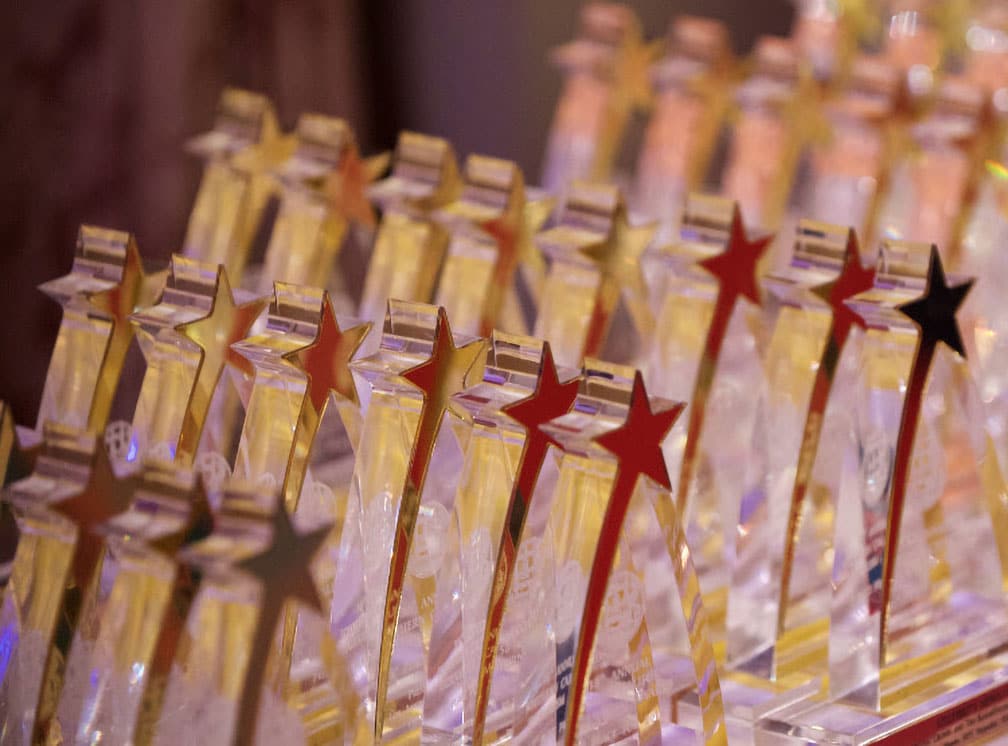In Philadelphia over winter vacation, I popped over to see the Philadelphia Museum of Art, one of the nation’s best. I got to stand alone before Picassos and Van Goghs. In fact, the only place I had to wait in a line of jostling, snap-happy tourists was to see — Rocky.
In the 1976 movie, the boxer, played by Sylvester Stallone, caps a grueling training montage by finally running all the way up the steps of the museum. He turns, faces his city and raises his hands in triumph. Stallone commissioned a statue to recreate the famous pose where it really fictionally happened, but the museum Brahmins relegated the thing to a little corner at the base of the steps. So that’s where the crowd gathered late on a freezing December afternoon: not inside to see Rodin, but outside, to see Rocky.
In a world lacking faith, coherence and community, movies are church, family and university. They are the first thing strangers can talk about, the last thing we all have in common. The British critic Alistair Cooke got it right many years ago when he called Hollywood, “the most flourishing factory of popular mythology since the Greeks.”
New England novelist John Updike got it, too. “It was one of history’s great love stories,” he wrote in his 1970 novel, “Bech: A Book,” “the mutually profitable romance which Hollywood and bohunk America conducted almost in the dark, a tapping of fervent messages through the wall of the San Gabriel Range.”
What’s interesting is how, many years since Updike wrote those lines, so few people still appreciate this simple fact.
The Catholic League, the Family Research Council, the self-appointed guardians of morality, decency and sound bites still spent 2009 attacking one of the few bright lights in a dark year.
“You are going to see anti-hunting, anti-Second Amendment circuses from Hollywood,” former Republican vice presidential candidate Sarah Palin said last July in her farewell speech as governor of Alaska. “And here’s how they do it. They use these delicate, tiny, very talented celebrity starlets. They use Alaska as a fundraising tool for their anti-Second Amendment causes…. And by the way, Hollywood needs to know. We eat, therefore we hunt.”
Disregard for now that last folksy joke — I mean, what’s not funny about tracking, shooting and skinning the people who make movies and TV shows? — the truth is Palin is wrong; Hollywood’s critics are wrong. In 2009, Hollywood helped save America.
The argument comes down to two facts: soft power and hard currency.
As the economy went into freefall, and no one was buying American homes, cars, or chazerei, everyone was lining up to buy our movies. 2009 was a record year, with more than $10 billion in U.S. and Canadian ticket sales and record numbers overseas as well (as of this week, January crossed the $1 billion mark for the first time ever). Hollywood did all this without a single bailout dollar or executive compensation scandal — maybe it is un-American after all.
As our cash ran low, so did America’s influence and reputation abroad. Our previous president was deeply unpopular abroad — no judgment, just a fact — as have been our wars in Iraq and Afghanistan.
Hollywood again to the rescue. American TV and movies have won hearts where American policy hasn’t, or can’t. The majority of the populations of Arab countries are under 25, and they are major consumers of American TV and movies.
It has been this way for ages. Back in 1984, I toured Southern Lebanon in the aftermath of the First Lebanon War. There was one busy store in the burned-out, war-ravaged port city of Sidon — a video store. Its window was plastered with posters of — you guessed it — Sylvester Stallone.
Critics of globalization will often mention McDonald’s and Hollywood together as examples of America’s “soft power” — the influence a country wields through culture, philanthropy and image. But that’s unfair. Hollywood at its best makes you feel and think and wonder. McDonald’s at its best still makes you fat and sick.
Hollywood’s power comes from its ability to shape the world through stories. Of course not everyone in Hollywood is Jewish, but it was Jews in Los Angeles, at the beginning of the last century, who merged the nascent technology of celluloid with the business of entertainment.
“The artistic triumph of American Jewry lay not in the novels of the 1950s, but in the movies of the 1930s,” Updike wrote, “those gargantuan, crass contraptions whereby Jewish brains projected Gentile stars upon a Gentile nation, and out of their own immigrant joy gave a formless land dreams and even a kind of conscience.”
The word may come forth from Zion, but the images come from Hollywood. Today, when the Web, cable and mobile apps divide and conquer people’s attention, movies and TV remain the most powerful single way to reach people to lead, educate and inspire.
My favorite movies of 2009 — “Inglourious Basterds,” “A Serious Man” and the Israeli movie, “Ajami” — all have indelible stories and enduring characters that can shake up perceptions and change values. That is power.
Last month, at a banquet at the Beverly Hilton, Steven Spielberg received the America’s Democratic Legacy Award from the Anti-Defamation League. In his acceptance speech, he said it even better than Updike, or me: “All it takes is the right story at the right moment, one true story, to make the world think.”























 More news and opinions than at a Shabbat dinner, right in your inbox.
More news and opinions than at a Shabbat dinner, right in your inbox.